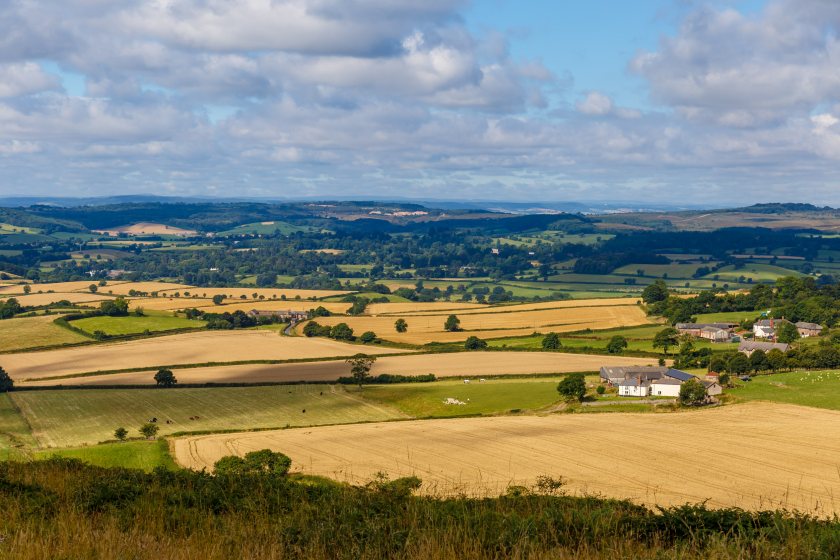
The UK’s ability to feed itself is under serious threat, with up to a quarter of farmland at risk of being lost by 2050, a new report has warned.
The study highlights the potential loss of up to 23% of current farmland due to competing demands for housing, solar energy, tree planting, biodiversity restoration and carbon sequestration.
Authors of the report 'UK Food Security – Outlook to 2050' say such a reduction would displace domestic food production on an unprecedented scale.
The report warns that the rate of growth in agricultural yields and food production has slowed in recent years. Unless productivity is prioritised alongside environmental measures, it concludes, the UK risks a significant fall in food self-sufficiency by the middle of the century.
Greater reliance on imports, it adds, could expose households to price increases and supply chain risks, with lower-income groups particularly affected.
It would also shift the environmental impact of food production abroad, potentially causing greater biodiversity and climate challenges elsewhere.
The analysis was led by Dr Derrick Wilkinson, former chief economist at the NFU and CLA, and published by the think-tank Science for Sustainable Agriculture (SSA).
Using AI-assisted forecasting, it drew on 25 years of government data on farmland use, yields and food supply to project outcomes under different land use and population scenarios.
Between 2000 and 2024, the UK lost 771,000 hectares of farmland, representing 4.4% of the total. If current trends continue, a further 835,000 hectares could be lost by 2050.
Under full implementation of government land use and environmental policies, almost a quarter of all farmland – much of it high-value arable land – could disappear.
Although yields per hectare have risen by 15% since 2000, population growth has outpaced output. As a result, per capita food production has fallen by 5% over the past 25 years, while self-sufficiency in primary agricultural products has declined by 12%.
The report also found that growth in yields and output has slowed significantly in the past decade. Contributing factors include extreme weather, rising input costs, the loss of crop protection products, tighter restrictions on inputs, and farm policies that discourage production.
In the worst-case scenario, domestic food production could decline by more than 32% overall – or 39% per person – by 2050. To fill this gap, food imports would need to increase by up to 260% compared with 2024 levels.
Population growth, with the UK forecast to reach between 75 and 80 million people by 2050, is expected to place further pressure on the country’s food supply.
While acknowledging the importance of climate and environmental goals, the report cautions that current approaches could undermine food security by reducing farmland without equivalent gains in productivity.
It calls for a shift in policy emphasis towards “land sparing” – concentrating high-yield farming on the most productive land – rather than “land sharing” practices that tend to limit yields. It also stresses the need for greater integration across agriculture, environment, energy, food and trade policy.
Dr Derrick Wilkinson, the report’s lead author, said the UK was struggling to keep up with the loss of farmland over the past 25 years.
He said: "New demands for land to address environmental concerns, coupled with rising food demand from a growing population, mean that we must find innovative ways of producing more food from the land we have left.
"The rate of growth in agricultural yields and output has slowed markedly over the past 10–15 years due to a range of factors, including challenges of extreme weather and a greater focus on production-limiting farm policy incentives.
"Boosting yields on remaining farmland is essential if we are to meet net zero and biodiversity goals without jeopardising food security.”
